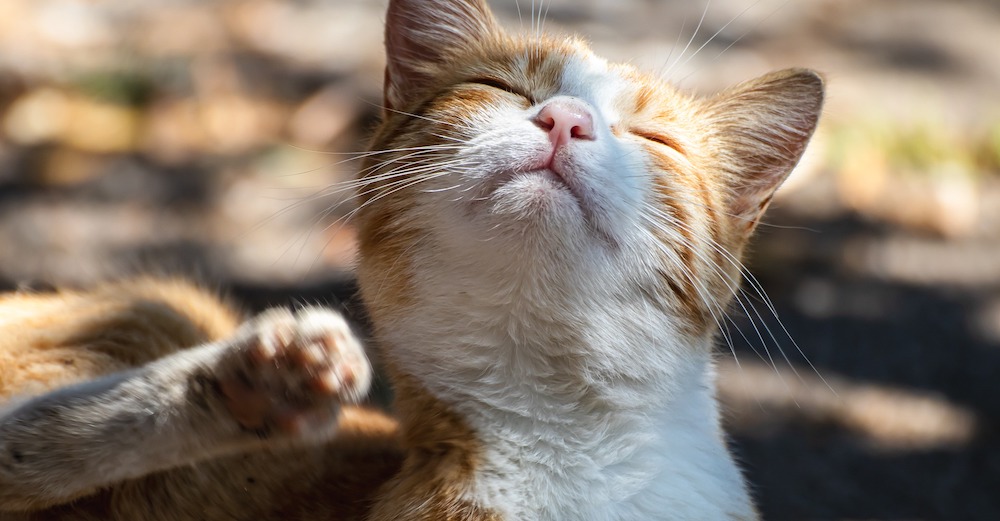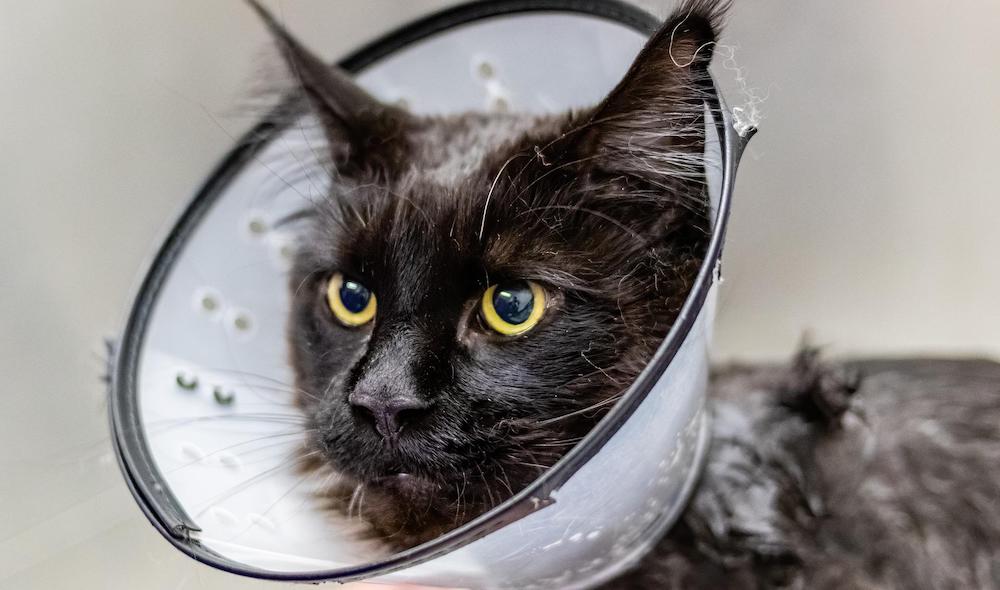Just like humans, cats can be prone to allergies. In fact, some breeds are more likely to be burdened with an allergy than others.

Here is a list of symptoms that may indicate that your cat has an allergy.
There are many allergies that affect cats, yet there are 5 that are commonly seen in cats.
It is hard to protect your cat against environmental allergies such as grass, fungi, mould, mildew, dust mites and dust.
That’s why a cat with an environmental allergy usually is treated with seasonal or long-term medication. Why? This is to prevent flare ups and to reduce ongoing symptoms that can affect your cat’s wellbeing.
Depending on how bad your cats’ symptoms are, you may consider injections to slowly build up tolerance. This is not a guaranteed solution and can take months to formulate.
A cat with a flea allergy can have a severe reaction from just one bite. The reaction is in response to proteins present in the flea’s saliva when it bites. These bites can create open sores or scabs when scratched, licked or bitten and can result in a skin infection.
To help avoid reactions to flea allergies, ask your veterinarian for flea prevention recommendations for use all year round.
Cats can be allergic to a variety of different foods much like humans. The most common food allergies in cats are from artificial colouring, corn products, dairy products, meat by-products, preservatives and seafood.
Food allergies can be hard to diagnose yet cats with food allergies typically have itchy skin and may also develop recurrent skin or ear infections. This can sometimes be accompanied with vomiting, diarrhea or increased gassiness. Speak to your vet about testing for food allergies.
A contact allergy is the reaction on the skin from contact with an allergic substance. These may include reactions to shampoos, collars or bedding. If your cat has a contact allergic there will likely be skin irritation and itching at the points of contact.
Removal of the contact irritant usually solves the problem. However, identifying the allergen is useful but can be challenging.

Inhaled substances include perfume, scented cat litter, cleaning products, air sprays, carpet powders or smoke. If you find that your cat is sneezing, their mouth and lips become swollen or their skin is itchy after contact with these types of products, it may be an allergic reaction.
Try switching to unscented products or removing these products from the household and see if your cat’s symptoms disappear.
If you suspect your cat is suffering from allergies, it is important to have them assessed by a professional. Feel free to contact Karingal Vet Hospital to book an appointment today.